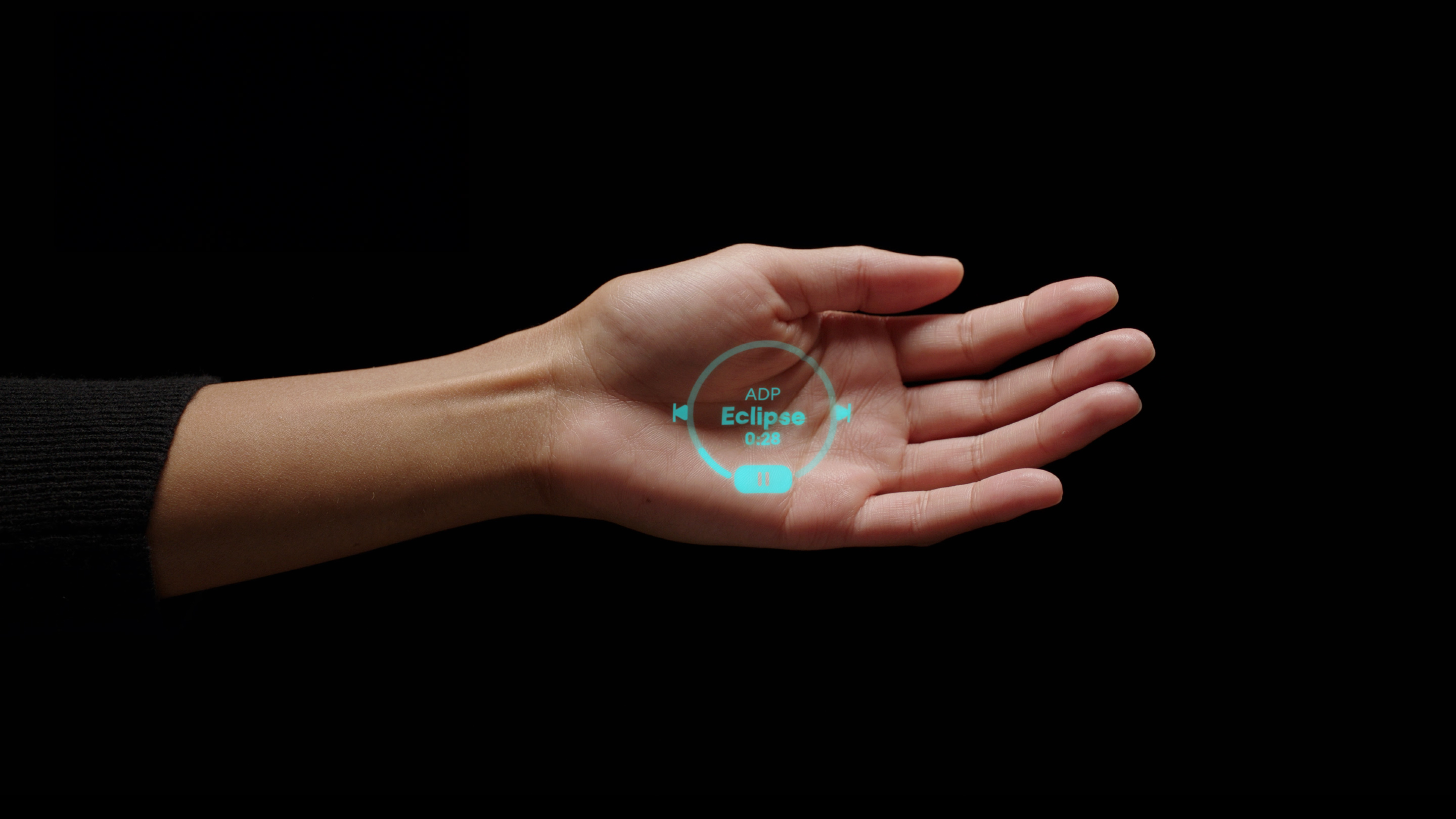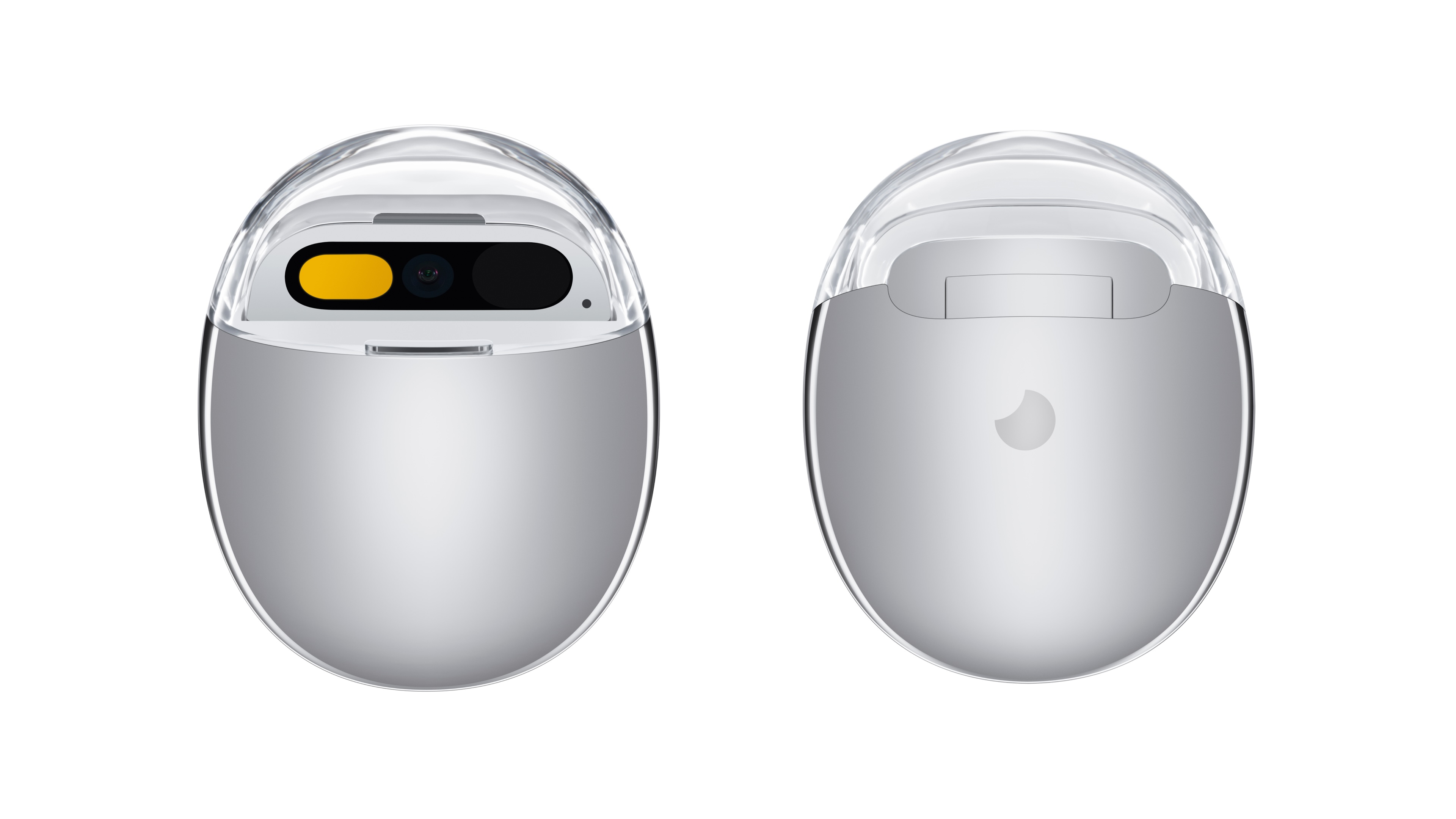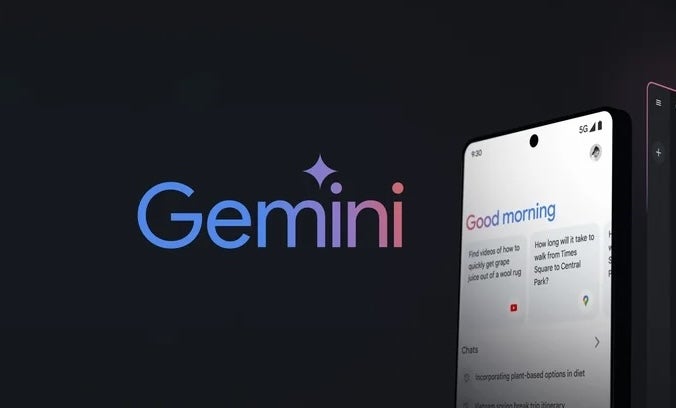Humane's Ai Pin, priced at $699 with an additional $24 monthly fee, offers a future in 'ambient computing'.
The long-awaited Ai Pin from Humane has officially been unveiled. Following months of anticipation, leaks, and sneak peeks, the compact device has finally arrived. The Ai Pin, which magnetically fastens to the wearer's lapel, gathers data through an integrated camera. It utilizes a Qualcomm chip and incorporates AI technology. Humane envisions that this device could potentially replace smartphones in the future. The Ai Pin will soon be available to the public.

The much-anticipated Ai Pin from Humane has finally been unveiled. This diminutive device, which attaches magnetically to the user's lapel, is equipped with a camera to gather data and is powered by a Qualcomm processor with integrated AI. Humane envisions this innovative gadget as a potential smartphone replacement. Orders for the Ai Pin open on November 16.
"The Ai Pin represents our dream of seamlessly weaving AI into everyday life, enhancing human abilities without compromising our essence," declared the founders of Humane in a statement. "We're excited to pull back the curtain on our endeavor that's been four years in the making. For us, the Ai Pin is just the starting point."
The Ai Pin bears a resemblance to the Narrative Clip, a previous attempt at a lifelogging camera that did not achieve lasting success. The device's design—a squircle—houses a camera, microphone, as well as depth and motion sensors. All the captured data is processed directly on the device by the Snapdragon chip. Central to the Ai Pin's functionality is voice control, a progression from the likes of smartphone assistants such as Siri. Interaction with the user is facilitated through a "personic speaker" or via connected Bluetooth headphones.

The Ai Pin is designed to break the constant screen-checking habit, offering an experience free from the usual display distractions. It features a touchpad and responds to gestures, making interaction intuitive and screenless. Uniquely, it operates independently, without the need for a smartphone connection, thanks to a dedicated Humane wireless network created through a partnership with T-Mobile.
The standout feature of the Ai Pin is its innovative Laser Ink Display. This cutting-edge technology beams information like incoming call notifications directly onto the palm of your hand, serving as a futuristic substitute for traditional screens.

Image Credits: Humane
The Ai Pin redefines power management for wearable devices with its innovative two-piece design, which includes the primary computing unit and a magnetic battery booster. This setup allows for a seamless, wireless connection through clothing, offering a versatile way to sport the Ai Pin. The highlight of this design is the capability to hot swap battery boosters without interrupting device usage, thereby promising an all-day battery life.
Echoing the privacy-conscious design of Meta's Ray-Ban smart glasses, the Ai Pin integrates a "Trust Light" indicator. This feature is designed to maintain transparency and inform bystanders when the device is actively recording, addressing potential privacy concerns. The debate over privacy continues to evolve, and it remains to be seen how the broader public will receive wearable tech capable of recording.
Humane emphasizes that the Ai Pin values user privacy, assuring that it only activates with intentional interaction and does not continuously listen for "wake words." The company stresses that the device's sensors are managed by a dedicated privacy chip, which not only signals activation through the Trust Light but also ensures the device shuts down and requires professional servicing if it detects any security breach.

Image Credits: Humane
Cosmos, the custom-built operating system powering the Ai Pin, marks a departure from traditional app-based interfaces, paving the way for a streamlined AI-driven user experience. With the innovative Ai Bus software framework at its core, the Ai Pin bypasses the need for app downloads and management, intuitively connecting users to the right AI-powered service instantly.
Although the release shies away from detailing the specific ChatGPT variant utilized, it does highlight partnerships with tech giants like Microsoft and OpenAI, hinting at the device's access to cutting-edge AI models. Ai Pin distinguishes itself as an independent entity, free from the tether of smartphones or secondary devices for its operation.
Customization of the Ai Pin takes place through the Humane.center platform, an off-device service that acts as a centralized command center for users' data management needs. From photos and videos to personal notes, Humane.center orchestrates a seamless integration of device setup and everyday usage.
The device's personal assistant, dubbed "Catch Me Up," promises to sift through the clutter of an overflowing inbox, while also boasting the ability to mimic users' unique communication styles in message composition.
Initial price speculations placed the Ai Pin in the luxury bracket, and while the actual price tag of $699 offers a slight reprieve, it remains a significant investment for a nascent product. Moreover, the monthly subscription fee of $24, equivalent to multiple streaming service subscriptions, adds an ongoing cost to consider for potential adopters.

Image Credits: Humane
Humane's Ai Pin offers an array of innovative features, including real-time translation and a smart food recognition tool designed to align with your dietary and fitness goals. While the current capabilities may seem limited, Humane ensures that the device and its ecosystem will expand and improve with subsequent updates, unlocking new possibilities.
Tidal, the high-fidelity music streaming service, has joined forces with Humane as the first official software collaborator, aiming to elevate the music experience through AI integration. Jesse Dorogusker, Tidal's CEO, expressed enthusiasm for the partnership, envisioning a future where music seamlessly integrates into every aspect of life through the Ai Pin. Users can anticipate a context-aware music selection that curates Tidal tracks to complement their surroundings and activities.
The buzz generated by the Ai Pin's debut is a phenomenon usually reserved for industry giants, reminiscent of the fervor that preceded the unveiling of Project Ginger. With anticipation so high that even Steve Jobs speculated it would revolutionize urban planning, the product, later known as the Segway, demonstrates the impact and potential pitfalls of such heightened expectations for new tech ventures.

The debut of the Ai Pin is shrouded in the kind of grandiose proclamations Silicon Valley has become known for, presenting us with a device that promises to be as transformative as it is compact. Although Humane's anticipated reveal during the recent solar eclipse didn't materialize—despite the buildup on their X account—the company has nonetheless infused the launch with the kind of significance one might expect from an Apple keynote.
It's no surprise that Humane's narrative is entwined with Apple's legacy, given that its co-founders, Bethany Bongiorno and Imran Chaudhri, are alumni of the tech titan. Their tenure there has undoubtedly influenced the buzz that's been simmering since last year.
Chaudhri, who served as a designer at Apple for two decades, left the company under a cloud in 2017, following an email he sent that cited the words of the ancient poet Rumi, hinting at the search for new inspiration after a period of stagnation. Bongiorno, with an eight-year stint that included directing software engineering for iOS and macOS, departed in 2016. It's likely that both had insights into the prolonged gestation of the Vision Pro, given their positions at Apple.

Then there’s the not-insignificant exodus of former Applers. Over the course of the startup’s half-decade existence, somewhere in the neighborhood of 90 ex-Apple employees reportedly work or worked for the 200-person team.
The announcement conveniently arrives during a fever pitch of excitement around generative AI, and the firm is pitching its first product as an early use case for the large language models that have captured the tech world’s imagination.
Every tech company, from the smallest startups to the Googles and Apples of the world, is scrambling to find effective ways to incorporate these technologies into real-world products. The Ai Pin is, perhaps, the first prominent device to capture that zeitgeist in a meaningful way, but it certainly won’t be the last.
Sam Altman serving as your largest shareholder (with around ~14% at last count) helps with the Silicon Valley bona fides, in spite of a recent report that the OpenAI CEO was quietly and independently working on what might have amounted to a direct competitor with Apple design guru and “aluminium” pronouncer, Jony Ive.
“We believe in a future where artificial intelligence amplifies human potential, and Humane shares this vision,” Altman says in today’s release. “We’re proud to be partnering with them to harness AI and redefine how we interact with technology — and the world.”
Including Altman’s backing, Humane has raised $230 million, including a $100 million Series C announced in March. Investors include Kindred Ventures, SK Networks, LG Technology Ventures, Microsoft, Volvo Cars Tech Fund, Tiger Global Qualcomm Ventures and Salesforce’s Marc Benioff.
Investors are certainly bullish, but is the world ready to look beyond the smartphone? Humane is far from the first company to ask the question. There’s been plenty of handwringing over the past decade about a world glued to the small screen, like scenes out of a John Carpenter film. This, after all, is the promise of the augmented reality headset. Google promised such freedoms with Glass a decade ago last February.
Humane is positioning its own future vision as the polar opposite of what Apple showed the world with the Vision Pro back in June — fully immersing oneself in the screen or being liberated from it. The narrative certainly hasn’t escaped Humane’s internal Slack channel. According to a former employee who spoke with The Information, “bashing” the headset was de rigueur among the staff, ex-Apple or no.
It’s “spatial computing” versus “ambient computing.” Both terms have been floating around for some time. Ambient computing, in particular, is an abstract enough a concept that people often disagree on the details. This is due, in part, to the fact that it was coined prior to the creation of the devices that will ultimately define it. Put simply, it’s technology that is out of the way by design. It’s a network of devices that work hard to make you forget they exist.
Over the past several months, Humane has attempted to retain its role as a secretive startup, while rationing out a good deal of information around the device. In May, Chaudhri gave a TED talk titled, “The Disappearing Computer: An Exclusive Preview of Humane’s Screenless Tech.” He wore a black Ai Pin set against a black jacket, staging a call from Bongiorno (the two are also married) to preview the device’s on-palm projection capabilities.
“In the future, technology will be both ambient and contextual,” he noted from the stage, “and this means harnessing AI to really understand you and your surroundings, in order to achieve the best results.”
In September, the Ai Pin made a cameo on the lapels of models walking the Paris runway. Humane also gave Time Magazine a preview of the technology for inclusion in its 200 Best Inventions of 2023.
The company is currently offering a waitlist for those interested in the device. It comes in three colors: Eclipse, Equinox and Lunar.
























![Largest Data Breaches in US History [Updated for 2023]](https://nulld3v.com/uploads/images/202311/image_430x256_654e69df8d469.jpg)












